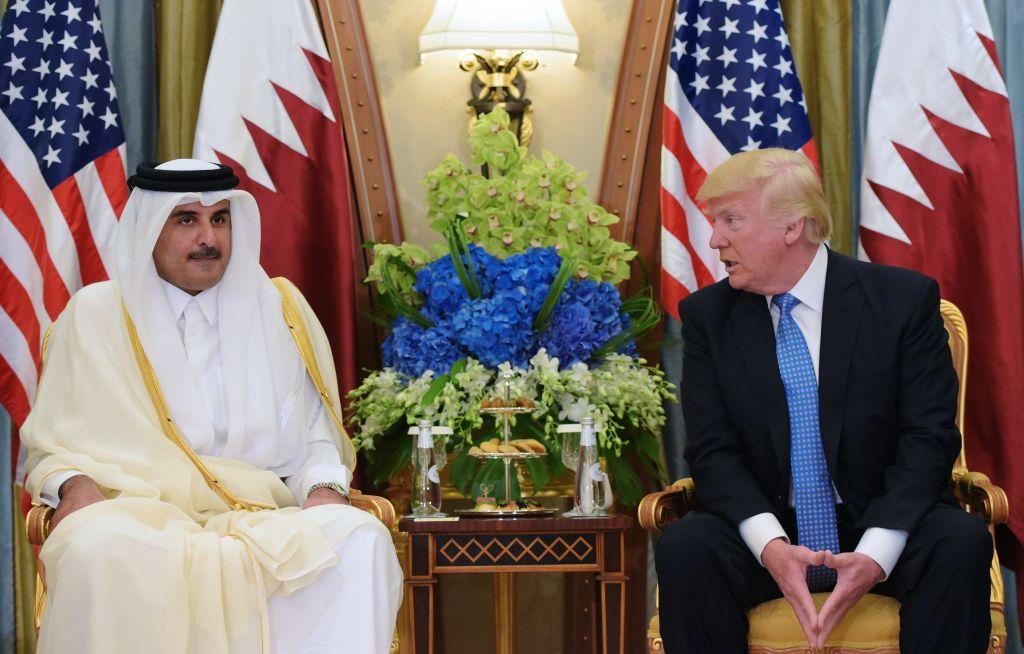Qatar crisis: This is why Saudi Arabia and its allies have suddenly cut ties to their Sunni Arab neighbour
Qatar's resistance to Saudi and Emirati dominance has seen tensions bubble along for years. It has taken the arrival of Donald Trump as US President to make them boil over

Qatar is unexpectedly under siege from its neighbours. Led by Saudi Arabia and the United Arab Emirates, supported by Egypt, Bahrain and Yemen, the five Arab states have cut diplomatic relations with Qatar, severed land, air and sea travel and are expelling Qatari citizens who have 48 hours to depart.
The Saudis and their allies are demanding, in effect, that Qatar end its independent foreign policy and tame or close down its television station, Al Jazeera. They claim that Qatar is complicit with Iran in supporting terrorism, though Qatar is one of the loose coalition of Sunni states supporting forces hostile to Iran in Syria and Yemen.
One pro-Saudi lobbyist in the US even threatens regime change in Qatar, tweeting to its Emir: “I would like to remind you that [elected Egyptian President] Mohammed Morsi did exactly the same [as you] and was then toppled and imprisoned.”
Saudi Arabia and Qatar have long been rivals and, despite Qatar’s small size, its great wealth and vast gas reserves have given it great influence. It backed the Arab Spring with its wealth and media outlets, supporting the Muslim Brotherhood in Egypt and Hamas in Gaza.
Three years ago in 2014 there was a similar but less serious confrontation between Qatar and its neighbours, who accused it of interference in their internal affairs. Since then Qatar has been much more compliant in not confronting or pursuing radically different policies from those of Saudi Arabia and the UAE.
What has changed in the Gulf to precipitate a crisis now? The answer is that the Trump wrecking ball passed through the region last month and the US President’s unreserved backing for Saudi Arabia, and in particularly for deputy Crown Prince Mohammed bin Salman, has disturbed the regional balance of forces. It has already emboldened the Sunni monarchy in Bahrain to crush the last Shia resistance to its dominance, killing five protesters in one village and closing down the only remaining independent newspaper.
Much more seriously, Mr Trump’s unqualified support for the Sunni monarchies and autocrats during his two-day visit to Riyadh emboldened the kingdom to start a second and, it hopes, final round in its confrontation with Qatar. Mr Trump may not have intended to touch off this latest crisis when he aggressively and inaccurately demonised Iran and by implication the Shia as the source of all terrorism in the Middle East and North Africa. But his words were interpreted by the Saudis as enabling them to move against Qatar though it is home to a major US base.
It will be difficult for Qatar to withstand what amounts to a form of siege. Under Mr Trump, the degree of protection it can expect from the US is uncertain and Prince Mohammed bin Salman, eager to secure his own path to the Saudi throne, cannot afford a failure. He may even want to go the limit and eliminate Qatar as an independent state, the first time this has happened in the Gulf since Saddam Hussein invaded Kuwait in 1990.
Join our commenting forum
Join thought-provoking conversations, follow other Independent readers and see their replies
Comments